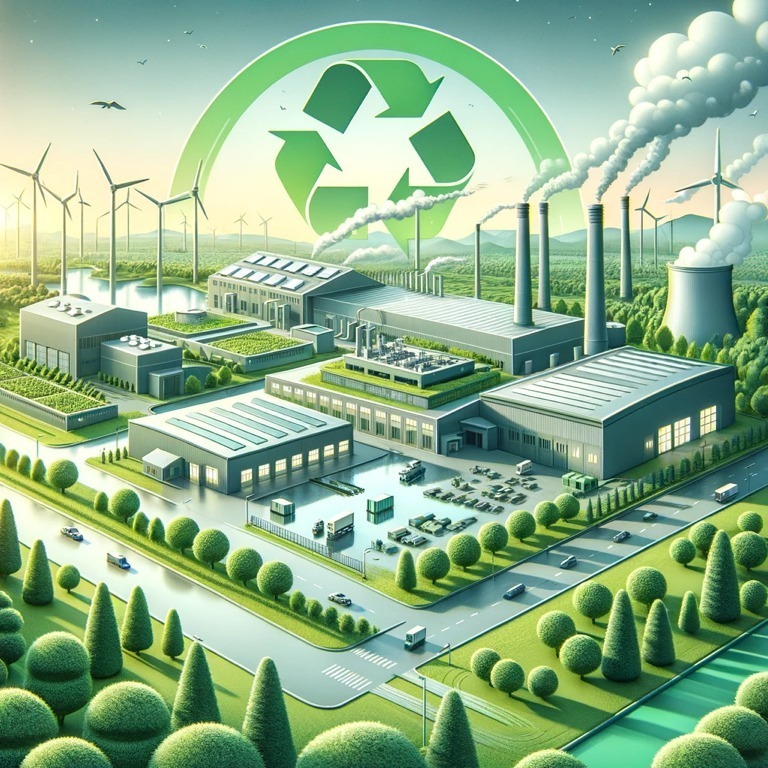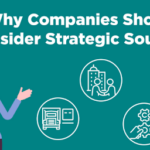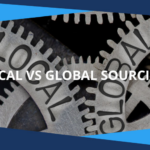As consumers grow, their environmental footprint and corporate social responsibility take center stage. Due to this, global product sourcing is moving sharply toward all things sustainable. This paradigm shift is an immense opportunity and an equally impressive challenge for product sourcing companies.
The operative word isn’t eco-friendly — it’s sustainable. The trend goes to the more fundamental processes by which their supply chains operate. From the sourcing of raw materials to the sale of a product, companies are retooling operations for environmental well-being. So with that let’s take a look at the methods product sourcing companies are deploying!
Ethical Sourcing
Ethical sourcing is the process of securing product development services that are as consistent as possible with a company’s core values. This includes purchasing from suppliers who pay workers a fair wage and don’t employ child labor. It also includes those who conduct their operations in an environmentally friendly way i.e., using fewer resources or recycling them.
The product sourcing agents are waking up and being considerate about ethical sourcing. After all, it’s not just about the future of the planet. If a supplier is found to be stepping out of line, a company’s brand integrity hangs in the balance. So, companies tend to scrutinize every option on price and quality as well as on ethical performance.
Sustainable Product Sourcing Methods in Action
Here are some sustainable sourcing methods that can help businesses lower carbon footprints:
-
Strategic Sourcing
Sourcing manufacturers adopting strategic sourcing of raw materials can identify global sources that are cost-effective. It supports their journey toward more sustainable growth. The result of adopting this approach is not only reduced procurement costs but also leverage their purchasing power to get better products and services.
Strategic sourcing companies are helping to modernize outdated procurement models. By using data analytics to monitor and predict market movements, recognize sustainability gaps, and work in partnership with suppliers, companies ensure conformity to ethical standards. The result is a situation where the manufacturer and environment win in equal measure.
-
Local and Global Partnerships
The next pillar of sustainable sourcing is the establishment of local and global partnerships. By partnering with local suppliers, manufacturers can reduce the carbon emissions associated with transportation. Sourcing locally also serves to support the local economy.
Global partnerships, meanwhile, also offer manufacturers a means of working with sustainably-minded suppliers in parts of the world where certain materials may only be accessible. Forming cross-border partnerships with ethical sourcing agencies helps both sides. It ensures that international standards are met and maintained throughout the sourcing process.
-
Transparency in the Supply Chain
Full traceability is non-negotiable in modern supply chains. Consumers are increasingly curious about where their products come from and how they got there. It is the responsibility of the businesses to ensure that they work with their suppliers to embed complete transparency within their sourcing process.
Technologies such as blockchain or RFID tagging can provide an unbroken trail from the raw material source to the shop floor. It ensures that clients and stakeholders can place their trust in exactly what they’re buying.
The Advantages of Sustainable Sourcing
While the moral imperative may be the most obvious reason to adopt sustainable sourcing methods, innumerable business benefits shouldn’t be overlooked:
-
Competitive Edge
Product sourcing services that prioritize ethical sourcing often gain a competitive edge. It sets them apart in a crowded market by capturing the consumers who are conscious of the environmental effects. Sustainable products can command premium pricing, which can offset the higher costs often associated with responsible sourcing.
-
Risk Mitigation
Engaging in sustainable sourcing is also a form of risk management. By ensuring that suppliers adhere to ethical and environmental standards, businesses can reduce the risk of potential damages. Otherwise, regulatory non-compliance, negative PR, or consumer backlash can result in interruptions.
-
Long-Term Viability
When done correctly, investing in sustainable practices secures the long-term viability of your business. With finite resources and a changing climate, regulations and market conditions will inevitably continue to broaden their demands for more ethical and sustainable sourcing practices. By getting ahead of the curve, businesses are better positioned to thrive in an evolving marketplace.
Challenges of Sustainable Sourcing and How to Overcome Them?
Sustainable sourcing doesn’t come without challenges. However, there are a few things that you can do to avoid those barriers:
-
Cost Implications
Perhaps the most pervasive challenge to implementing sustainable sourcing is cost. Ethically sourced materials and labor often come at a premium, which can be a significant obstacle for small- or medium-sized product sourcing companies.
To address this obstacle, it’s important to change the narrative of sustainable sourcing’s cost implications. It needs to shift away from being immediately costly to a longer-term value. Encouraging businesses to look at the bigger picture, considering things like the longevity of materials is a crucial part of making sustainability an economically feasible strategy.
-
Complexity of Supply Chains
The complexity of supply chains can be a significant barrier to implementing sustainable sourcing. Trying to overcome this to ensure that downstream practices are ethical and sustainable can take a range of interventions, from supplier vetting to ongoing audits, and even training programs.
This is where technology solutions, such as supply chain management software, can help break down some of these barriers. Perhaps more significantly, it can also be supported through new forms of collaboration that focus on partnerships, rather than purely transactional relationships.
-
Changing Corporate Culture
Finally, transitioning to sustainable sourcing often requires a cultural shift within a company. It’s not just about implementing new processes. It’s about living and breathing a new set of values. Getting there is difficult, but companies who prioritize sustainability from the top and work to foster and support a culture that rewards sustainable behavior will overcome it.
By creating performance metrics that include sustainability targets and training programs for new employees, the process will be seamless.
In Summary
In a nutshell, sustainable sourcing is not simply a novel concept that has potential. It’s the future of e-commerce product sourcing. The companies who grasp this reality and begin making sustainable sourcing a part of their strategies are the leaders of tomorrow. It’s a challenging transformation to make, but the value makes it one of the most rewarding.
For businesses, the benefits of siding with sustainable practices are clear, a healthier planet. We seek more equitable working conditions and a more resilient supply chain. Treating it as anything less than an investment in the future, especially when so many resources that facilitate and guarantee that investment are finally available.








